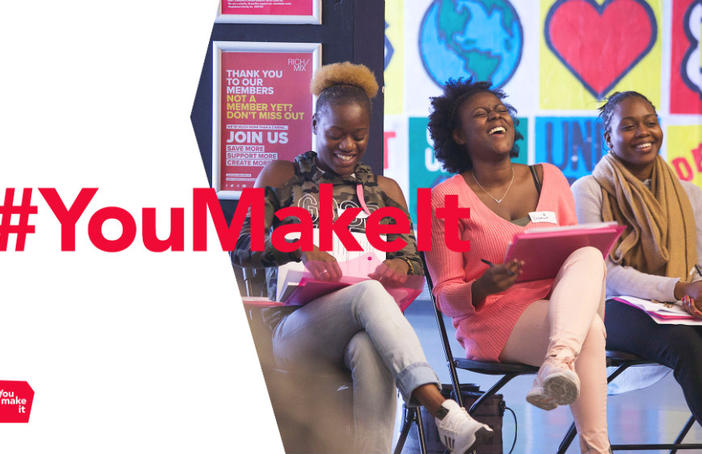Blog Post
"Just because you’re the demographic who gets the gig, does not mean you’ve got all the answers"
Asma Shah, founder of You Make It, writes about the difference between exclusive and inclusive leadership following her talk at our conference

Asma Shah contributed to the panel on inclusive leadership at our People Place Power conference. Here she talks about leading the change she wanted to see out there.
Getting the train to Wolverhampton from London was exciting! I sometimes joke that I rarely get to leave my postcode, both living and working in the East End as I do. I was doubly pleased when I met someone from another panel on the train I already knew, Jeanette Bain-Burnett, and someone who has become a new friend, Stella Duffy. The journey time flew as we chatted about the ups and downs of our varied life paths, with commonalities too.
Arriving at the conference, I immediately felt at home. I missed being amongst the arts community, as I had formally left the sector when I set up my charity. My organisation now had a relationship to it, but I wasn’t really in it….
Asked to talk openly about the theme of inclusive leadership on panel, I reflected on how my own experiences of being a woman of colour from a less privileged class background had given me strong insight into what exclusive leadership feels like. I’d often felt on the outside of the creative and cultural industry organisations I’d worked in, was forever the imposter made to feel grateful of being given a job, was frequently overlooked – this had crushed my confidence. The awareness of bad leadership had made me super-conscious of how I wanted to run my own organisation – which is to trust my team, nurture them, allow them to become leaders in their own rights, and to grow in confidence and self-belief about their abilities in the process.
I talked about the process of setting up You Make It, which I did in response to my personal struggles, and professional ones in my previous career. I wanted the women I targeted through You Make It programmes to have a stronger sense of self worth and belief in order to challenge those who undermined them going forward in their careers. It would happen to them, but they would be prepared.
I also talked about the need for myself, at a personal time of crises and in response to my mum passing away, to feel I was able to lead change that I wanted to see out there – which was for young women of colour not born into luck to have the same opportunities to network, to have the same stab at experiences and careers in sectors normally out of reach, to be heard and have the same healthy sense of entitlement to good lives as those from privileged backgrounds do. I wanted You Make It to enable women to take leadership over their own lives.
I reflected on the nature of our programmes, and how we have constantly evolved and developed our services in response to what our women have asked for – I emphasised the need for organisations to take this approach, to trust in the experiences and intelligence of those they try to reach in order to make themselves relevant and vital. Let go of all the control.
It felt so good to be able to talk authentically as a leader, about my style as one, and to know it has come about from honest reflection about what I know has disempowered and empowered me in the past. It felt really good to know that I was finally away from London and that my empowered team were working with our newest recruit of empowered women to make life feel better.
Overriding in all the panel’s talks, and what I hoped the arts-based organisations would take away from the conference and implement in their own practices, was that we have to better trust that the communities we wish to engage with must be given space to co-create and develop projects on offer, and that inclusive arts is about being inclusive in your style of leadership. Just because you’re the demographic who gets the gig, does not mean you’ve got all the answers – people on the outside of organisations often do though. They just need to be found, listened to and heard.
Asma is the Founder CEO of You Make It
www.you-make-it.org







